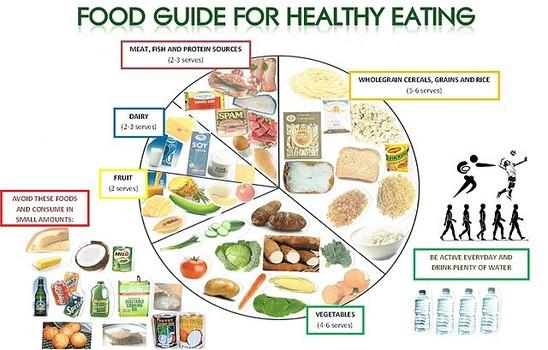Managing blood sugar levels is a crucial aspect of maintaining overall health, particularly for those living with diabetes or prediabetes. Understanding the right diet can be empowering, offering a path to not only control blood sugar but also improve quality of life. This article aims to guide you through the best diet plans specifically designed to help regulate blood sugar levels. We understand that navigating dietary choices can be overwhelming, and it’s important to find a plan that aligns with your lifestyle and personal preferences. With empathy and clarity, we will explore various diet plans, highlighting their benefits and practical tips for implementation. Whether you’re seeking to stabilize energy levels, reduce health risks, or simply feel better, these diet plans offer valuable tools to help you take control of your health journey.
Understanding Blood Sugar and Its Impact on Health
Balancing blood sugar levels is crucial for maintaining overall health, especially for individuals with diabetes or those at risk. Understanding how different foods impact blood sugar can help in crafting a diet plan that stabilizes glucose levels and supports well-being. Here are some strategies to consider:
- Prioritize Low-Glycemic Foods: Foods with a low glycemic index (GI) are digested more slowly, leading to a gradual rise in blood sugar. Incorporate items like whole grains, legumes, and non-starchy vegetables into your meals.
- Embrace Healthy Fats: Fats from sources like avocados, nuts, and olive oil can help moderate blood sugar spikes by slowing the absorption of carbohydrates.
- Focus on Fiber: High-fiber foods not only aid digestion but also help control blood sugar levels. Include plenty of fruits, vegetables, and whole grains to your diet.
| Food Type | Examples | Benefits |
|---|---|---|
| Low-GI Foods | Oats, lentils, quinoa | Steady energy release |
| Healthy Fats | Avocado, almonds, olive oil | Slows carb absorption |
| High-Fiber Foods | Berries, broccoli, beans | Improves digestion |
Being mindful of your dietary choices can have a significant impact on managing blood sugar levels. By incorporating these strategies, you can take proactive steps towards a healthier lifestyle, supporting both physical and emotional well-being.

Key Nutrients to Include in Your Blood Sugar Management Diet
Managing blood sugar levels effectively starts with incorporating the right nutrients into your diet. These essential components can make a significant difference in maintaining balance and promoting overall health. Below are some key nutrients to focus on:
- Fiber: Crucial for slowing down the absorption of sugar, fiber helps maintain stable blood sugar levels. Opt for whole grains, legumes, and vegetables to increase your daily intake.
- Healthy Fats: Foods rich in omega-3 fatty acids, like salmon and flaxseeds, can improve insulin sensitivity and reduce inflammation.
- Magnesium: This mineral plays a vital role in glucose metabolism. Include nuts, seeds, and leafy greens to ensure adequate magnesium levels.
- Chromium: Known for its role in enhancing insulin action, chromium can be found in broccoli, barley, and oats.
| Nutrient | Food Sources |
|---|---|
| Fiber | Whole grains, legumes, vegetables |
| Healthy Fats | Salmon, flaxseeds |
| Magnesium | Nuts, seeds, leafy greens |
| Chromium | Broccoli, barley, oats |

Choosing the Right Diet Plan for Your Lifestyle and Needs
Finding the right diet plan can be a game-changer when it comes to managing blood sugar levels. With so many options available, it’s essential to choose a plan that aligns with your personal lifestyle and health needs. Consider the following factors when making your choice:
- Flexibility: Look for a diet that offers a variety of food choices and can be easily adjusted to fit your daily routine.
- Nutritional Balance: Ensure the plan includes a healthy balance of macronutrients and micronutrients to support overall health.
- Sustainability: Choose a diet that you can maintain in the long term, rather than one that is overly restrictive or challenging.
Below is a comparison of popular diet plans often recommended for blood sugar management:
| Diet Plan | Key Features | Pros | Cons |
|---|---|---|---|
| Mediterranean Diet | Rich in fruits, vegetables, whole grains, and healthy fats | Improves heart health, easy to follow | May require meal planning |
| Low-Carb Diet | Limits carbohydrate intake, focuses on protein and fat | Effective for weight loss, reduces blood sugar spikes | Can be restrictive, initial side effects |
| DASH Diet | Emphasizes fruits, vegetables, and low-fat dairy | Lowers blood pressure, heart-friendly | May require significant dietary changes |

Practical Tips and Meal Ideas to Maintain Steady Blood Sugar Levels
Managing blood sugar levels can seem daunting, but with a few practical tips and creative meal ideas, it becomes much more manageable. Start by focusing on balanced meals that combine proteins, healthy fats, and complex carbohydrates. This trio helps slow the absorption of sugar into the bloodstream, preventing spikes and crashes.
- Incorporate more fiber: Foods like oats, beans, lentils, and whole grains are rich in fiber, which helps regulate blood sugar levels.
- Mindful snacking: Choose snacks like nuts, seeds, or Greek yogurt, which offer a mix of protein and healthy fats to keep hunger at bay.
- Hydration is key: Staying hydrated can help your kidneys flush out excess sugar, so aim for plenty of water throughout the day.
| Meal | Ingredients | Benefits |
|---|---|---|
| Breakfast | Oatmeal, berries, almonds | High in fiber, boosts energy |
| Lunch | Grilled chicken, quinoa, spinach | Rich in protein and iron |
| Dinner | Salmon, sweet potatoes, broccoli | Omega-3s and antioxidants |
Additionally, practicing portion control can be crucial. Eating smaller, more frequent meals can prevent blood sugar swings and keep you feeling satisfied. Remember, consistency is your ally, so try to eat around the same times each day to help your body maintain a steady rhythm.








































